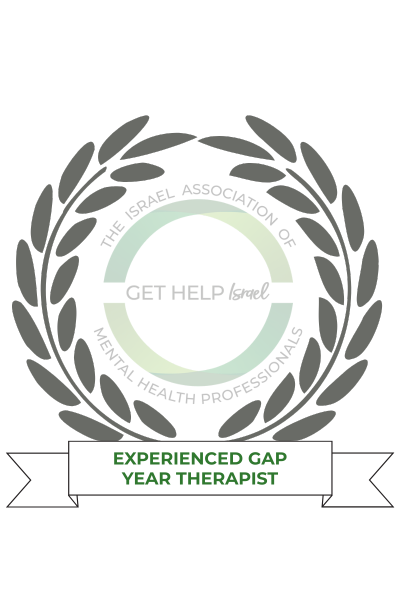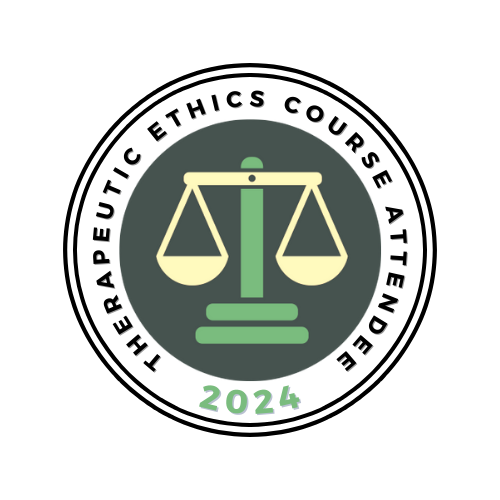Elisabeth Wajnryt
Credentials
Eating Disorders Specialist
Finances
Licensed in Israel
Licensed Abroad
- Bet Shemesh
- Bet Shemesh
- Rabbi Yanai
- Bet Shemesh
- Email Me
-
 Business HoursEvenings
Business HoursEvenings
Elisabeth Wajnryt
 Verified
Verified
Credentials
Clinical Psychologist
Eating Disorders Specialist
PsyD
Finances
500-700 NIS
Private Insurance
Free Consultation
- Bet Shemesh
- Bet Shemesh
- Rabbi Yanai
- Bet Shemesh
ABOUT THE THERAPIST
I am dedicated to researching and integrating the most effective psychotherapy strategies to help people heal and thrive. I believe therapy is about inspiring hope, fostering new perspectives, and offering a safe space to develop skills and tools for a more fulfilling life.
As a Clinical Psychologist and Psychoanalyst with over 35 years of experience, I specialise in individual therapy, Eating Disorders, couples, and parenting. I provide in-person and online sessions in English, Hebrew, and Portuguese.
I've developd the "Making Peace" approach that combines Psychotherapy and Neuroscience with knowledge, personal support, resources and practical tools and exercises.
This combination enhances awareness of thoughts, emotions and physical body cues, allowing us to change the habits and patterns that usually keep us from achieving our goals and living in peace in our relationships with our life, ourselves, our bodies, partners and kids.
I call my approach “Making Peace”, as it reflects my belief in helping clients heal and grow in the most fundamental areas of life:
Making Peace with Food and Body: Eating disorders and emotional eating
Making Peace with Yourself: anxiety, depression, perfectionism and self-esteem
Making Peace with Your Partner: Gottman's research-based approach to help couples rebuild connection and navigate conflict. Certified Gottman Level 3 Couples Therapist
Making Peace with Your Children: Parenting guidance and training
I work with individuals and groups, blending deep emotional insight, psychoeducation, and practical tools to foster real, lasting change. I’m especially passionate about self-esteem, guiding clients to understand its building blocks and make structured, often surprisingly rapid progress in this area.
Eating disorders and emotional eating have a special place in both my professional path and my personal journey. I know firsthand the grip of compulsive eating and the peace this work can bring to our lives. My structured program helps clients reconnect with their body’s natural hunger, selectivity, and satiation cues, while also reshaping their relationship with body image. We also explore the science of metabolism and physical activity, often debunking unhelpful myths along the way.
As a certified Gottman Level 3 Couples Therapist, I’ve supported hundreds of couples in rebuilding trust, navigating conflict, and creating more resilient, connected relationships.
Another area close to my heart is parenting. The guidance I offer is grounded in both research and real-life experience. It transforms family dynamics and strengthens the parent-child bond.
Our work begins with a free 15-minute consultation. In this initial conversation, we’ll explore your goals and outline a personalized roadmap to ensure the best fit for your needs.
Throughout our work together, you’ll gain deeper self-awareness, learn effective strategies to navigate your challenges, and develop the tools and skills to build a more harmonious connection with yourself and with others.
QUALIFICATIONS
PsyD
Pontificia Universidade Catolica
1983
Degree
PsyDEducation
Pontificia Universidade CatolicaYear of Graduation
1983Years in Practice
39
REGISTERED PSYCHOLOGIST IN ISRAEL
Registration in Pinkas Hapsichologim
27-153774
Mumche Category
Clinical Psychologist
Mumche License Number
27-41321
LICENSED ABROAD
License Number
CRP 17981-3 BrazilADDITIONAL CREDENTIALS
Clinical Psychologist licensed in Israel and Brazil
Psychoanalist-1987
Eating disorders-1990
EMDR 1 and 2- 2002
Gottman Couples Therapy Certification - Level 3: 2019
DISTANCE COUNSELING
Telephone Counseling, Online Therapy
PRIMARY SPECIALTIES
Couples / Relationship / Marriage Counseling
Eating Disorders
Mood Disorders
ADDITIONAL SPECIALTIES
Anxiety / Panic
Depression
Parenting Issues / Training
Self-Esteem
CLIENT FOCUS
Population
Adolescents
Adults
Couples
Men
Women
Languages Spoken
Portuguese
Hebrew
English
Native Language
Portuguese
TREATMENT APPROACH
Body-Mind PsychotherapyBody-mind psychotherapy is an integrative approach to psychological treatment that draws from both psychotherapeutic and somatic/body-based approaches. It emphasizes the interconnection between physical, emotional, cognitive and spiritual aspects of being. This approach seeks to help individuals explore how physical sensations, emotions, thoughts and beliefs influence their behavior and well-being. Through this exploration, individuals can gain insight into how the body and mind interact to create patterns of behavior, and how those patterns can be changed to promote healing and wellness.
Cognitive Behavioral Therapy (CBT)Cognitive Behavioral Therapy (CBT) is a type of psychotherapy that focuses on how one's thoughts, feelings and behaviors are connected and can be changed. It is based on the idea that how we think (cognition) and how we feel (emotion) can influence how we behave. CBT helps people identify and challenge distorted thinking and replace it with more balanced thinking, leading to improved mood and behavior. ‘Homework’, usually containing practical writing exercises, is often completed by the client between sessions to reinforce the therapy. Examples of tools that practitioners often use are journaling, challenging beliefs, and mindfulness.
Eye Movement Desensitization and Reprocessing Therapy (EMDR)Eye Movement Desensitization and Reprocessing (EMDR) is a psychotherapy treatment that was originally designed to alleviate the distress associated with traumatic memories. It uses a structured approach to address the past events that may be causing current distress, and uses bilateral stimulation, such as eye movements, to activate different neural networks in the brain in order to reduce symptoms of trauma. EMDR has been found to be effective for a wide range of mental health issues, including anxiety, depression, and PTSD.
Gottman MethodThe Gottman Method is an evidence-based approach to couples therapy that is designed to help couples strengthen their relationships and resolve conflicts. This method is based upon decades of research on thousands of couples and utilizes an approach that is both structured and collaborative. The method is designed to help couples increase respect, affection, and closeness, break through and resolve conflict, generate greater understanding, and to keep conflict discussions calm. It emphasizes the importance of self-regulation, constructive communication, and creating a safe environment for couples to talk and work through their issues. During sessions, couples work on skills such as active listening and expressing needs and feelings effectively. Couples are also given tools to identify and work through conflicts by using problem-solving techniques and developing strategies to manage emotions and reduce stress.
Mindfulness-Based Cognitive Therapy (MBCT)Mindfulness-Based Cognitive Therapy (MBCT) is a form of therapy that combines cognitive behavioral therapy with mindfulness practices. It is based on the idea that our thoughts, emotions, and physical sensations can affect our mental health. MBCT helps individuals become aware of their thoughts, emotions, and physical sensations in order to gain insight and control over them. MBCT helps clients learn how to recognize their sense of being and see themselves as separate from their thoughts and moods. This separation can free the client from thought patterns in which the repeated negative messages may be dominating the client’s focus. After developing an awareness of the separation between thoughts, emotions, and the self, people in treatment may find that while the self and the emotions may exist simultaneously, they do not have to exist within the same dimension. The healing can take place when one learns how to interject positive thoughts into negative moods and thereby create a shift in mood.
PsychoanalysisPsychoanalysis is a form of psychotherapy that focuses on unconscious processes and is used to treat mental health conditions. It is based on the belief that unconscious conflicts are the root of psychological issues. It seeks to understand an individual's psychological experience, including thoughts, feelings, and behaviors, in order to identify patterns, uncover underlying conflicts, and gain insight into how these conflicts may be impacting the individual's life. Psychoanalysis is based on the idea that unconscious processes and experiences can affect behavior, mood, and relationships. The goal of psychoanalysis is to help the individual gain insight into these unconscious processes. Psychoanalysis suggests that the client’s symptoms can be reduced by bringing these conflicts into conscious awareness.
Psychodynamic TherapyPsychodynamic therapy is a form of therapy that focuses on the unconscious mind and how it affects behavior. It works to help people understand and work through past experiences and feelings that may be causing difficulties in the present. This type of therapy encourages individuals to explore their emotions, relationships, and behaviors in order to gain insight into their current difficulties. It can help individuals better understand themselves and their motivations, and gain insight into how past events have impacted their current lives. People tend to develop defense mechanisms when faced with challenges in life. Defense mechanisms may keep painful feelings, memories, and experiences in the unconscious. A few common defense mechanisms include: denial, repression, and rationalization. Psychodynamic therapists encourage people to speak freely about their emotions, desires, and fears. Being open may help uncover vulnerable feelings that have been pushed out of conscious awareness. According to psychodynamic theory, behavior is influenced by unconscious thought. Once painful feelings are brought forth and processed, the defense mechanisms are no longer needed and a person in treatment can start changing unhelpful patterns when coping with life’s challenges.
Rational Emotive Behavioral Therapy (REBT)Rational Emotive Behavioral Therapy (REBT), originally developed by Albert Ellis, laid the foundation for what is now known as Cognitive Behavioral Therapy. It is a philosophically and empirically based psychotherapy that focuses on resolving emotional and behavioral problems by identifying and challenging irrational beliefs. Based on the notion that we are typically unaware of our deeply embedded irrational thoughts and how they affect us on a day-to-day basis, Ellis established three guiding principles of REBT. These are known as the ABCs: activating events, beliefs, and consequences. Rewiring old patterns of thinking requires a lot of work and commitment, so active participation and openness in the therapy process is essential to success.
Solution-Focused Brief Therapy (SFBT)Solution-focused therapy is a type of therapy that focuses on what is going right in a person’s life, as opposed to what is going wrong. It is based on the premise that when a person can identify what is working, they can build on it and make positive changes to the areas of their life that need improvement. A therapist using this approach will often ask questions designed to bring out a person’s strengths and resources, rather than focusing on problems or past issues. The aim of this type of therapy is to help people find solutions to their current problems, in order to build a better future. A solution-focused therapist encourages those in treatment to develop a vision of the future and offers support and guidance as they determine the skills, resources, and abilities needed to achieve that vision successfully.
A non-diet approach for Binge-Eating based on the physiological signals of hunger, selectivity and satiation
SERVICES OFFERED
Individual Therapy
Group Therapy
Couples Therapy
Consultation
Workshops/Educating
Hadrachat Horim

Therapist's Experience with Gap Year Students
In the last years, the incidence of Eating Disorders has escalated in general but especially among our gap year population. I've been working with many young people in this situation, taking their specific stressors and triggers into account and integrating the therapeutic work with the parents and school setting.


 Verified
Verified


